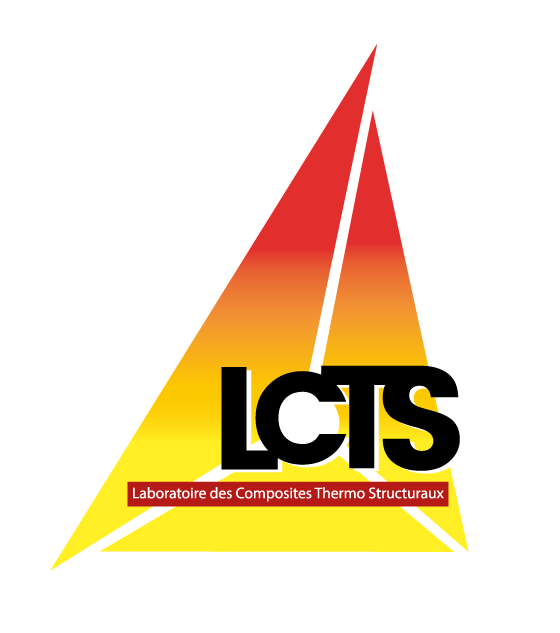
Scientific services
The scientific services of the ThermoStructural Composites Laboratory are essential to the proper functioning of the Unit and include : - the development of thermal structural materials - the morphological, structural and chemical characterization of thermostructural materials - physico-chemical characterization of thermo-structural materials - mechanical and thermal testing services for thermo-structural materials - the digital platform - acquisition and control
-
Processing
-
Morphological, structural & chemical characterization
-
Physico-chemical characterization
-
Mechanical & thermal testing
-
Numerical platform
-
Acquisition and control
An important part of the activity at LCTS addresses the development of materials; it is based on a large number of experimental devices: either devices intended for the development of matrices, interphases, fibers, solid materials or thin layers, or furnaces for heat treatments (pyrolysis), often under controlled atmosphere. Some facilities are highly instrumented to produce diagnoses on heat transfer, fluids composition, sample mass variation kinetics, etc. Some means are modified, or even designed from A to Z so that they best meet the scientific need expressed in projects.
There are about fifteen reactors intended for gas-route synthesis (chemical vapor deposition and infiltration) in continuous, pulsed, or fluidized bed modes, in the presence of a boiling precursor, on single fibers, bundles, fibrous preforms, powders, etc…, with a wide variety of chemical systems allowing the synthesis of carbides, nitrides, borides, oxides. The liquid route (melt infiltration) is also being studied with devices of different sizes, one of which can operate under a tomograph. Finally, many heat treatment furnaces are also present, allowing graphitization (3000°C max.), pyrolysis on solid samples or on fibers, under vacuum or under various atmospheres (vacuum, Cl2, N2, O2, H2O, ... ).
The department maintains these facilities in working order and designs other ones on request for any new project. It ensures that in-situ characterization means (microbalances, thermocouples, IR camera, FTIR spectrometer, etc.) are also available on these devices.
Processing team
S COUTHURES,
M BOISSERIE,
R BOUVIER,
The characterization of materials is the essential link that connects the various research axes of the laboratory, from the synthesis of constituents and composites to high-temperature tests, through the modeling of materials and their behavior.
To do so, the lab benefits from a large fleet of instruments (TEM, SEM, OM, DRX, microRaman, etc.) and equipment for sample preparation (embedding, polishing, ion thinning) which makes it possible to cover the most of its needs in terms of chemical, structural and morphological characterization. The lab also frequently uses equipment from the neighboring Placamat platform (Micro-tomograph, TEM, etc.) but also large instruments such as the ESRF, Soleil, SLS, ILL … A particular effort is put on the processing of 2D or 3D images resulting from the various types of means of characterization.
The continuous evolution of the characterization department in the laboratory is carried out thanks to the staff dedicated to it but also thanks to recurring financial investments. It should also be noted that the characterization services contribute to the training of many interns and PhD candidates.
The in-depth analyzes made possible by this set of equipment, personnel and training enrich and facilitate the lab's research activities.
Morphological characterization team
M ALRIVIE
H PLAISANTIN
C HUGUET
The characterization of materials is the essential link that connects the various research axes of the laboratory, from the synthesis of constituents and composites to high-temperature tests, through the modeling of materials and their behavior.
To do this, the laboratory benefits from a vast array of instruments (ATG, BET, FTIR, SM, porosimeter, pycnometers, permeameter, etc.) which makes it possible to cover the majority of its needs in terms of physico-chemical characterizations. The laboratory also frequently uses equipment from the neighboring Placamat platform (eg, XPS).
The continuous evolution of the characterization department in the laboratory is carried out thanks to the staff dedicated to it but also thanks to recurring financial investments. It should also be noted that the characterization services contribute to the training of many interns and PhD candidates.
The in-depth analyzes made possible by this set of equipment, personnel and training enrich and facilitate the lab's research activities.
Physico-chemical characterization responsible
L LAPUYADE
Physico-chemical characterization team
S COUTHURES
O ANTONIN
C HUGUET
The service provides research staff with a wide variety of mechanical and thermal test devices at different scales, from tests on macroscopic specimens to in-situ tests under an X-ray tomograph or under a microscope, to push-out and nano-indentation and to tests on minicomposites, microcomposites and elementary fibers, in various mechanical, thermal and environmental stress modes (static, cyclic, ambient or hot, in air, under vacuum or under controlled atmospheres). In-situ diagnostics and measurements are varied: force and displacement measurements, strain gauges, strain field measurements by digital image correlation, in-situ acoustic and electrical measurements, thermal measurements by pyrometry and IR camera, etc.
The department collects test needs and proposes suitable solutions to meet them, ensuring the proper functioning of the fleet of devices and proposing adaptations or new resources when necessary.
Mechanical & thermal testing responsible
A EBEL
Mechanical & thermal testing team
B HUMEZ
C HUGUET
S JOUANNIGOT
D DAMIANI
The LCTS has a computation room comprising around ten calculation and visualization workstations. The laboratory also has a cluster made up of about ten nodes as well as an 80-core shared memory machine. The LCTS also has access to resources of the Bordeaux campus: the Aquitaine meso-center cluster as well as the PlaFRIM platform (approx. 1000 cores) through its joint activities with INRIA Bordeaux Sud-Ouest.
Numerous scientific software is made available to the entire laboratory: Abaqus, Zébulon, Fluent, OpenFOAM, Avizo, Paraview, VisIt, etc. The service also offers support for software development carried out at LCTS, thanks to a common development platform which gathers both software development tools (compilers, scientific libraries, versioning tools, etc.) as well as libraries specific to the laboratory around "virtual material" activities and specific needs in meshes, linear algebra, visualization, etc.
Finally, the service is committed to promoting its own developments, in particular through the transfer of the developed tools and software to the lab’s partners.
Numerical platform responsible :
G. COUEGNAT
To provide support to experimenters developing their means of manufacturing, testing and/or characterization, the Acquisition and Control Department develops specific applications allowing the most efficient automation possible of the control of devices as well as the acquisition and saving the raw data of the experiments.
Members
A. Ebel
T. Malard

